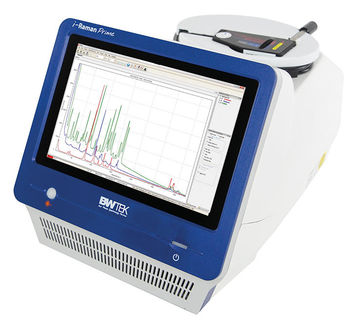To use all functions of this page, please activate cookies in your browser.
my.chemeurope.com
With an accout for my.chemeurope.com you can always see everything at a glance – and you can configure your own website and individual newsletter.
- My watch list
- My saved searches
- My saved topics
- My newsletter
Molecular markerMolecular marker is a term with a number of uses. It is any kind of molecule indicating the existence of a chemical or physical process. In particular, in the fields of geology and astrobiology, biomarkers (also known as biosignatures) are sometimes understood as molecules indicating the presence (past or present) of living organisms. It can also be a molecule used as fiscal marker to distinguish lower-taxed items from higher-taxed ones when they otherwise can be substituted (see fuel dyes). Product highlightIn medicine, a molecular marker can be a substance that is introduced in an organism as a means to examine something. For example, rubidium chloride is used as a radioactive isotope to evaluate perfusion of heart muscle. In biology and medicine, a molecular marker (biomarker) can be a substance native to the organism whose detection indicates a particular disease state (for example, the presence of an antibody may indicate an infection). In genetics, a molecular marker (identified as genetic marker) is a fragment of DNA sequence that is associated to a part of the genome. |
| This article is licensed under the GNU Free Documentation License. It uses material from the Wikipedia article "Molecular_marker". A list of authors is available in Wikipedia. |







